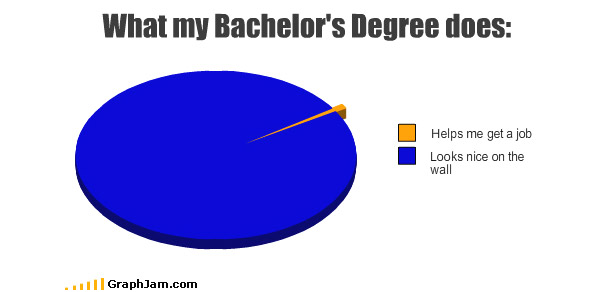It has been a year now, since i landed in Germany for my Masters. In the past one year, there have been numerous times, many of my friends, relatives, kith and kin have asked me one same question, "HOW DO THEY TEACH THERE??" or "HOW'S THE TEACHING DIFFERENT FROM THE COLLEGES IN INDIA.?".
First and foremost, i would like to introduce myself as an International student of Indian origin, doing my Masters in Germany. I was intrigued by these questions so much, because whenever i do Skype or speak to someone from my home country, i tend to answer these type of questions. I am not saying that, it's bad, but everyone are eager to know the differences in the teaching methods, which led me to write this post on the Educational Differences.
To answer those questions, i would like to first share my experience of college, during my Bachelor's degree; so that you will get to know more about the differences in teaching. During my 4 year course in India, there used to be classes from morning 8.30 to 4 in the evening and mine was a orthodox college, where we had many strict rules. During the class hours, there will be compulsory attendance and we shouldn't roam around the campus. The teachers used to come and teach many topics which they themselves wouldn't understand. There used to be no opportunity for innovative thinking or research or any practical exposure. Because the teachers themselves do not know these things and they only insist on getting marks from the theoretical exam. Moreover, the course itself didn't have any prospects for practical training or industrial experience.
Moving onto the course in Germany, it is totally opposite to my experience in India. In Germany, we have the option of selecting the subjects that we want to attend and no one will force us to take up a particular subject. It is just that, by the end of the course, you need to complete the certain number of credits to get your degree. Many of the courses have compulsory internship and the students from other courses also can apply for voluntary internship in the companies or to their faculties. There are more opportunities for student job, interns, thesis. We can get more exposure, via these offers. It all depends on us, if we apply for a certain job position and if the HR feels that our profile matches with the job description, you can easily get a call for either telephonic interview or they will call you for a personal interview, where most of the companies will reimburse the travel costs.
The infrastructure of the University in Germany are very good and unlike many colleges in India, they have every instrument for the practicals and all the professors and their team are very well versed with the subject and they are easily approachable for clarification of any doubts. Everything over here works by mail, so if you have any doubts or need any guidance, you have to initiate the conversation by sending the concerned authority a simple mail explaining your issue. They make a point to check their emails and they do reply to it as soon as possible.
Moreover, in my university there is no attendance for the theory classes and hence the professor doesn't care whether you are attending the class or not. But if you attend the class, it will be useful for you during exams and if you are not interested in the lecture, you can silently go out of the room without disturbing anyone.
In my personal experience, sometimes students goto class just to use Internet, because in some buildings, you get internet only if you are actually inside the class(NOT ME!! :P). There won't be lectures all day long, it depends on the timetable, the subjects you choose and university. So, students get more free time and they tend to use it for sports, learning new things, meeting people and various extra-curricular activities.
The semester fees is very low and as a student, you can travel within your city with your ID card for free. And you can even use to travel in DB BAHN within your state also for free. The semester fees comes to around 300 euros per semester and it is worth every penny, because buying tickets daily and travelling in public transport is very costly in Germany.
As soon as you register to the university, you will be given your credentials ( a separate Username and Password) with which you will be able to register for subjects, you can check your results and mainly you will be allowed to connect to the university WiFi (Eduroam). This Eduroam will be very helpful, because till you are a student, you can use this WiFi all over Europe for free. From my personal experience, i was able to connect to Eduroam even in Prague(Czech Republic).
Finally, with all the state of the art infrastructure, knowledgeable staff, practical exposure, travel ticket and WiFi, at a cost of 300 to 400 euros per semester is what everyone can afford. Even though there are no rules and restrictions, i have seen students working sincerely and they are serious about their life. There is so much freedom given to the students, and they do not misuse it. I hope that, if you give freedom to the students, they act maturely and responsibly.
P.S: All the above incidents are from my personal experience, not to hurt anyone's feelings.
If you are interested to know more, check out my other post too. http://aravindsindhey.blogspot.de/2015/09/free-education-in-germany.html







Hi Aravind,
ReplyDeleteThank you for sharing your insights.
From the looks of it, I know one can directly apply to German Universities after completion of their Undergrad but do you think it is wise? Should one get some field experience or can one survive in Germany as a Master's Student?
What is your take?